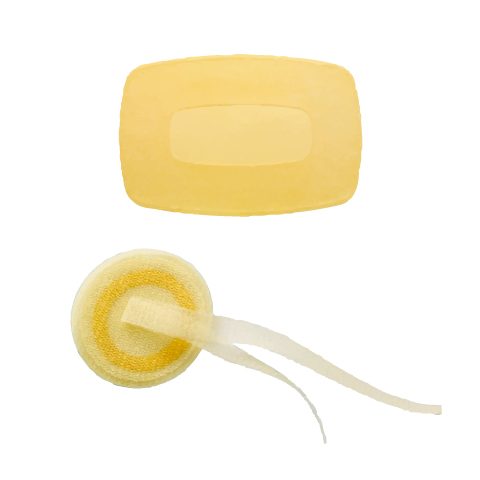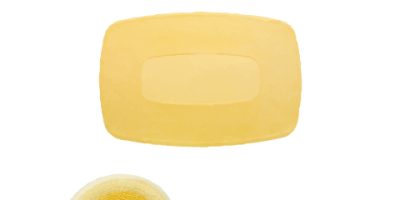C-QUR Mesh
C-QUR mesh has a unique fish-oil-derived coating. Atrium Medical manufactures C-QUR mesh. Studies link C-QUR mesh products to high infection rates. Atrium recalled 145,000 C-QUR units in 2013, citing packaging problems. The mesh has also been the subject of FDA warnings and a federal injunction.
- Medically reviewed by Dr. John A. Daller
- Last update: April 16, 2025
Atrium Medical manufactures several different C-QUR hernia mesh products. The company claims its unique, absorbable coating prevents many hernia mesh complications. But some studies suggest C-QUR has a higher infection rate than other meshes. Patients have also reported complications to the U.S. Food and Drug Administration.
FDA inspectors found manufacturing violations during several inspections of Atrium’s plant. The agency sent the company a warning letter after a 2012 inspection. The agency sought an injunction to stop C-QUR manufacturing in 2013.
Maquet Getinge Group purchased the company in 2011 for $680 million. Atrium continues manufacturing C-QUR at its plant in New Hampshire.
What Is C-QUR Surgical Mesh?
Atrium Medical manufacturers C-QUR mesh products for hernia and other soft tissue repair. These include chest wall reconstruction, and traumatic and surgical wounds. C-QUR meshes are permanent implants.

Atrium intended C-QUR for inguinal hernia repair using the IPOM surgical technique. This technique places mesh between the hernia wound and the intestine. It can create an adhesion risk. Adhesions are scar-like tissue that connect tissue that wouldn’t normally be connected.
C-QUR mesh has a fish-oil-derived coating. Atrium claims the fish oil prevents inflammation and adhesions. But studies show it has higher adhesion and infection rates than many other brands.
FDA 510(k) Clearance
The FDA cleared C-QUR mesh through its 510(k) process in 2006. The process lets manufacturers skip more rigorous testing requirements.
It allows a new device on the market if its maker shows that it is “substantially similar” to one already approved. Since 2006, Atrium produced several other C-QUR variations.
- C-QUR Mesh
- C-QUR Mosaic
- Vitamesh
- C-QUR Tacshield
- C-QUR V-Patch
- C-QUR CentriFX
- C-QUR FX Mesh
Adhesions and Other Complications
Atrium claimed that the fish-oil-based coating would reduce adhesions and reactions. But people still reported these and other complications to the FDA. Some studies have shown higher infection rates linked to C-QUR compared to other mesh.
Reports of C-QUR Complications Include:
- Adhesion to the bowels
- Bowel obstructions
- Fistula formation (an abnormal connection, such as between the abdominal wall and intestines)
- Hematoma (blood collecting in tissue)
- Infections
- Inflammation or swelling
- Seroma (buildup of fluid under the skin)
- Severe allergic reactions
- Severe pain
C-QUR Safety And Efficacy Studies
C-QUR’s fish-oil-based coating is a bioabsorbable film. Atrium claimed it would keep mesh from touching internal organs. This would prevent mesh adhesions. Atrium claimed the coating “has been shown to minimize tissue attachment to mesh.”
In one of its 2011 product brochures, Atrium said the coated mesh provides patients with “a durable, long lasting repair, and a more natural healing experience.”
Research is mixed on how long a mesh hernia repair will last. A 2022 study followed 100 patients for ten years after a ventral abdominal hernia repair. No recurrence was recorded after three years, while about 10% had a recurrence after roughly eight years. Two patients had a central breakdown of the mesh at about seven years. Mesh had stretched across the defect by an average of 21%. Mechanical testing showed that the mesh lost its elasticity at low forces.
Atrium’s studies found its coated mesh had a “minimal inflammatory response” compared to non-coated meshes. It also performed as well as or better than several commercially available hernia mesh products such as Ethicon’s Proceed and C.R. Bard’s Composix for tissue attachment and mesh contraction. Mesh contraction can cause pain and other issues. C-QUR mesh had lower rates of mesh contraction, according to the product brochure.
But some studies question the safety and effectiveness of Atrium C-QUR hernia mesh.
One team of researchers tested C-QUR on animals. Researchers found that the infection rate was higher with C-QUR mesh than with other mesh.
One animal died less than two weeks after implantation. Researchers said the mesh caused bowel obstruction and was to blame. Studies also show that the coating interferes with tissue growing into the mesh.
“After 30 days there was a significant increase in adhesions and immune response around the mesh implants.”
A 2016 case study looked at a 61-year-old woman who received C-QUR mesh for an incisional hernia repair. After 10 months, she complained of pain and upper abdomen discomfort.
The authors performed a revision surgery. They found thick, oozing adhesions around the mesh.
The doctors removed the mesh and part of her stomach. They determined that the mesh and fish-oil coating created an inflammatory response. They also blamed it for the adhesions.
Manufacturer Recalls
In 2013, Atrium announced a series of recalls for packaging problems. The recalls affected more than 145,000 C-QUR units. The recalled products included C-QUR V Patch, TacShield, Edge and standard C-QUR Meshes.
Atrium cited “excessive humidity for an extended period of time” in its recall notice. The problem could cause the mesh coating to stick to its “inner handling sleeve.”
FDA’s Atrium C-QUR Inspections
The FDA received C-QUR complications reports as early as 2008. The agency inspected the C-QUR manufacturing plant four times between 2009 and 2013.
Each time, inspectors reported violations of federal regulations. Problems included monitoring, reporting and manufacturing issues.
The FDA sent Atrium a warning letter in 2012. Warning letters are among the most serious actions the FDA takes against manufacturers.
The letter cited manufacturing and sterilization issues. Inspectors reported human hair and other foreign matter in supposedly sterilized C-QUR. The letter accused Atrium of changing its manufacturing process without testing the changes.
DOJ, FDA Block C-QUR Manufacturing
A 2013 inspection turned up similar violations to what the FDA found in earlier ones. Atrium had promised to fix those problems following each inspection.
Because it did not, the FDA decided to take stronger action. The agency and the Department of Justice sought an injunction against Atrium. A court agreed and blocked C-QUR manufacturing until Atrium fixed the problems.
Atrium agreed to a consent decree. The company agreed to pay $6 million dollars for the problems listed in the injunction. Atrium agreed to pay another $6 million unless it corrected problems at the plant.
Atrium C-QUR Hernia Mesh Lawsuits
People who suffered C-QUR complications filed hernia mesh lawsuits in several courts. In 2016, hernia mesh lawyers sought a multidistrict litigation (MDL) for C-QUR cases.
MDLs combine several similar lawsuits. They can move through the legal process more quickly and efficiently.
The MDL panel selected the District of New Hampshire as the court for C-QUR litigation. People had filed several of the lawsuits in the district already. Atrium is also headquartered there.
As of July 2020, there were 2,241 lawsuits in the MDL. The first C-QUR lawsuit was scheduled for trial in 2020, but Atrium asked the court to move the trial to January 2021 because of the COVID-19 pandemic.
Calling this number connects you with a Drugwatch.com representative. We will direct you to one of our trusted legal partners for a free case review.
Drugwatch.com's trusted legal partners support the organization's mission to keep people safe from dangerous drugs and medical devices. For more information, visit our partners page.


